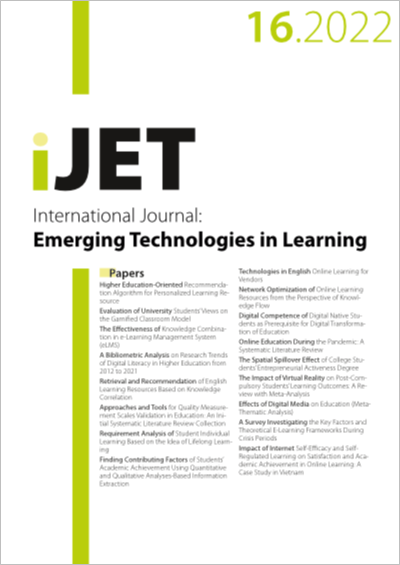A Survey Investigating the Key Factors and Theoretical E-Learning Frameworks During Crisis Periods
DOI:
https://doi.org/10.3991/ijet.v17i16.33593Keywords:
E-learning frameworks, COVID-19 Pandemic, Crisis periods, Virtual School, Equitable EducationAbstract
In the previous ten years, there has been an astounding expansion in the study and application of e-learning frameworks. The recent literature and e-learning ideas were investigated in this study, with e-learning research’s different parameters being précised. E-learning processes’ associated services, technology, as well as stakeholders, are the three principal aspects of e-learning systems. A typology of services comprising e-learning models is presented in a framework, with stakeholders, technology, and learning approaches being included. Accordingly, the aforementioned aspects are considered through a detailed literature review, with e-learning frameworks’ relationship with the different classified stakeholder groups also clarified. Finally, ways to resolve the foremost challenges identified through the literature review are posed, with our e-learning system also presented. Furthermore, the proposed answer may direct and facilitate the appropriate appraisal of learners, educators, and educational facilities by decision-makers, drawing on data provided through live interaction.
Downloads
Published
How to Cite
Issue
Section
License
Copyright (c) 2022 Yaser Sh. Mahmood, Mohamed Dbouk, Ihab Sbeity, Zein Ibrahim

This work is licensed under a Creative Commons Attribution 4.0 International License.


